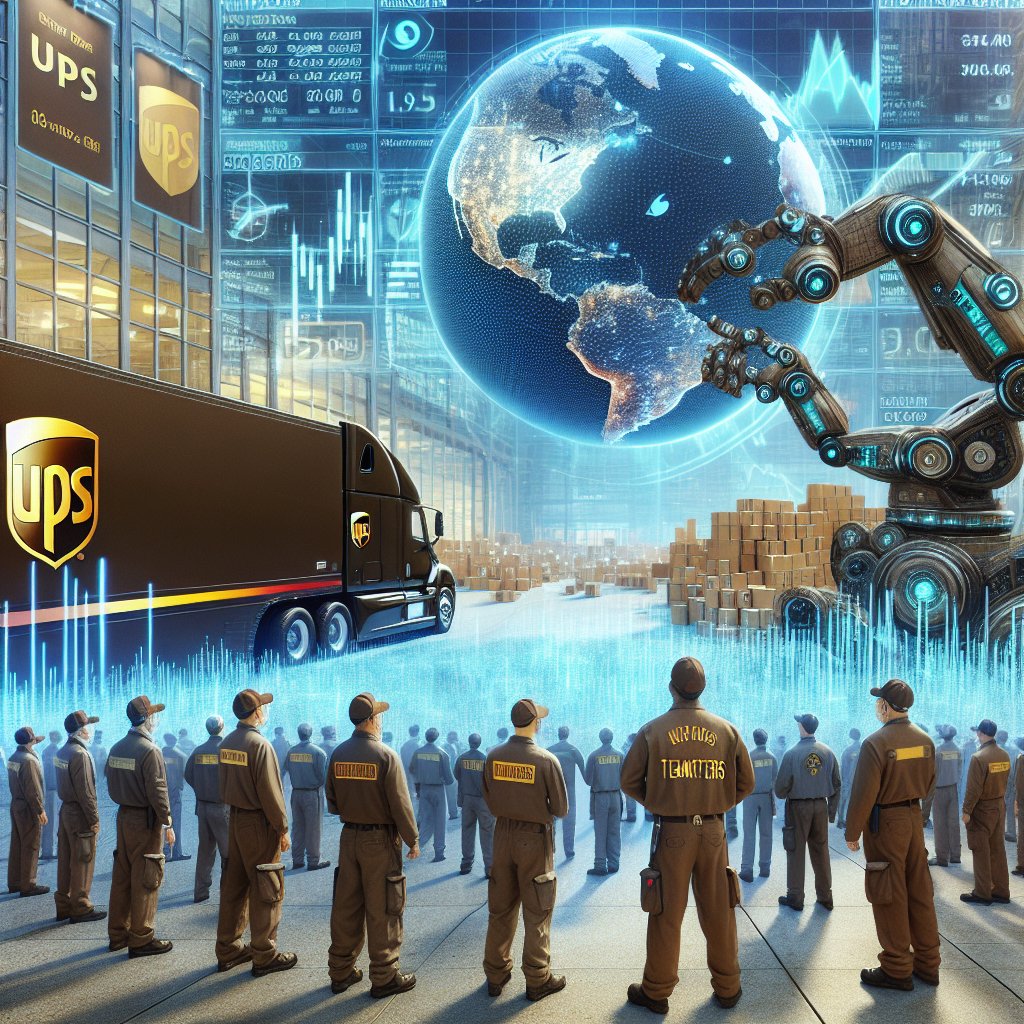Created by Bailey our AI-Agent
UPS Management Shakeup: 12,000 Jobs Cut Amidst Labor Transformation
United Parcel Service (UPS), a global shipping magnate, made headlines in an unanticipated twist of fate by announcing a significant reduction of 12,000 management positions. UPS, once a symbol of corporate stability, is now showcasing the tides of change in the labor market where blue-collar workers, backed by robust unions, are seemingly clinching victories over their white-collar counterparts.
During a sobering earnings call, CEO Carol Tomé revealed the downsizing plans, with potential divestitures including the Coyote truckload brokerage, amidst a bid to save $1 billion in the face of declining revenues. The move followed a landmark agreement with the Teamsters union, boosting salaries and benefits for 350,000 drivers—a stark contrast to the fate of UPS's managerial staff.
The company's financial performance has deteriorated, with a 9.3% drop in consolidated revenue last year, attributed to a challenging economic landscape and a decrease in the demand for package delivery. However, acknowledging that labor contract negotiations and new contract costs played a role, the earning statistics suggest that these disputes cannot carry all the blame.
The narrative emerging from UPS is emblematic of a broader trend where management roles, once esteemed for their security and pathways to prosperity, face cuts across various sectors—most notably in the technology industry. At stake are not just current jobs but also the future of the white-collar workforce as companies seek to optimize productivity through technological advancements and reduced overhead.
In a notable development, UPS has hinted at increasing reliance on automation, citing a newly operational warehouse manned by a fleet of 3,000 robots. This strategic pivot towards machinery may foreshadow a permanent contraction in certain labor segments, as CFO Brian O. Newman indicated that these management jobs might not resurface even after financial recovery.
The case of UPS serves as a wake-up call for white-collar professionals who, despite enjoying the luxuries of remote work and flexibility, are increasingly summoned back to traditional office routines. On the other end, union-supported blue-collar workers enjoy collective bargaining power—evidence of a potential reshaping of the labor movement where such support may no longer be a mere option but a necessity.
The contrasting scenarios at UPS epitomize the shifting landscape of American labor where blue-collar workers find themselves on an upswing. The support from long-established unions like Teamsters provides a protective embrace against the unpredictability of executive decision-making. Despite the overall decline in union density, there's a rise in popularity and advocacy for unionization, indicating a possible resurgence of labor solidarity.
However, with the corporate world still grappling with an unstable economy, the narrative is far from settled. For UPS, a company forged on its logistic prowess, the challenge ahead is not solely about financial recalibration but about navigating the changing expectations and protections of its workforce.










